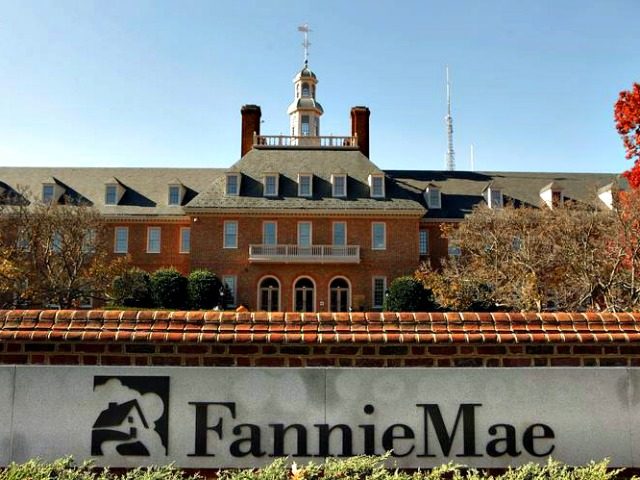The Trump administration’s newest budget projects earnings for Fannie Mae and Freddie Mac that will strengthen the hand of government lawyers defending the sweep of their profits.
Fannie and Freddie currently pay all of their profits to the U.S. government as a dividend for the $191.5 billion the government invested in the two companies after they came veered to collapse in 2008. The Trump administration’s 2019 budget projects that over the next ten years, these payments will total $182.1 billion.
That projection is bad news for shareholders, including prominent hedge funds managers, who have mounted legal challenges to the dividend. Shareholders have filed several lawsuits challenging a 2012 change to the dividend which moved it up from 10 percent of their bailout funds to their entire positive net worth, an arrangement known as the net worth sweep.
The government said it put in place the dividend as a form of relief for the companies after several years in which their earnings fell short of the amount needed to pay the 10 percent. In those years, the companies were forced to draw more bailout funds just to repay them to the U.S. Treasury as a dividend. The net worth sweep arrangement eliminates these circular draws by linking the dividend directly to earnings.
As the housing market recovered, Fannie and Freddie wrote up past losses and tax credits, allowing them to record enormous payments. Shareholders objected that these profits should not have been transferred to the government, accusing the government of expropriating funds illegitimately.
That argument has been largely rejected by the courts, both at the district court and appeals courts levels. But its weakness is highlighted by the new budget projections because they suggest that even if the dividend were returned to a 10 percent level, earnings would be insufficient.
The math is quite simple. Ten percent of $191.5 billion would require at least $19.5 billion of annual earnings. The Trump budget projects an average of just $18.2 billion. As a result, there would be over a $1 billion shortfall on average per year.
This adds credibility to the government’s claim that over the long term, the net worth sweep helps the companies more than it hurts them. The government has said the net worth sweep supports its efforts to preserve the health of the two mortgage giants.
The government’s investment in Fannie and Freddie has been profitable. Through December 31, 2018, the companies have paid a total of $292.3 billion in dividend payments to Treasury. But they are still dependent on the government’s commitment to spend up to $445.5 billion to support them, of which $256 billion remains available.
Shareholders have asked courts to deem the payments already made as a repayment of the bailout. Although over half a dozen federal courts have heard that argument, all have rejected it.
The budget notes that the Trump administration plans to work with Congress to implement comprehensive housing finance reform. But deep divisions in Congress make a bipartisan reform that could pass the Democratic House and Republican Senate an unlikely outcome.
The budget also includes a provision to raise the additional fee Fannie and Freddie are required to charge on top of the guarantee fee they charge on bonds they back from 0.1 percent to 0.2 percent. This fee gets paid directly to Treasury and was put in place by Congress in 2011 in an effort to reduce the budget deficit.

COMMENTS
Please let us know if you're having issues with commenting.